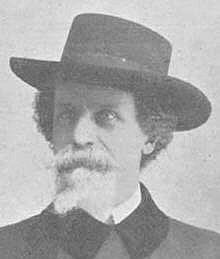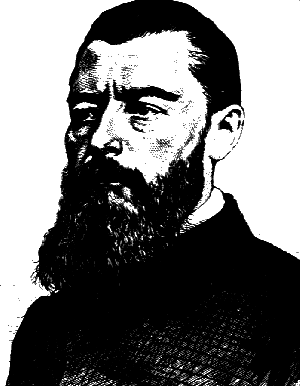Fe
Fernando, Weerahennedige Theodor Wilfred Meryl (1923-2007)
Born Koralawella, Moratuwa (Ceylon). Son of Cornelius Fernando, a small shop keeper and trader. His maternal uncle edited a Sinhala nationalist newspaper. Educated Prince of Wales College, Moratuwa, Colombo University, and the Teachers’ Training College, Maharagama. Under influence of elder brother, Aloysius, an Lanka Sama Samaja Party member from late ‘thirties, he participated in LSSP study classes, 1942, and joined the party while still a student. After war, organized match factory workers in Kelaniya and Moratuwa, and carpentry workers at Willorawatte, Moratuwa. Secretary, Moratuwa branch of Kelaniya Match Workers Union. Employed as a teacher. Detained for three weeks during the Hartal, 1953. Member of Parliament (Moratuwa), 1956-64. Member and Chairman, Urban Council, Moratuwa, for 15 years. Split from LSSP, 1964; founding member, LSSP (Revolutionary), 1964. Founder, Revolutionary Samasamaja Party/Revolutionary Workers Party, 1968. Retired from active politics and worked as an English teacher and bookkeeper at the University of Moratuwa. Collaborated with Oscar Pereira (1926-2001) and other Trotskyists on historical research in the ‘nineties. Contributed to the British journals What Next? and Revolutionary History and the book, Blows Against the Empire: Trotskyism in Ceylon- the Lanka Sama Samaja Party, 1935-1964 (1997).
Compiled by Charles Wesley Ervin
Ferri, Enrico (1856-1929)
 Italian socialist and criminologist. Born in Lombardy, he became a lecturer and then a professor in Criminal law. Ferri continued the criminology of Cesare Lombroso, emphasizing social and economic factors. He was regarded as one of the fathers of the “Positive School,” and argued against a legal system based on retaliation and punishment, preferring crime prevention measures.
Italian socialist and criminologist. Born in Lombardy, he became a lecturer and then a professor in Criminal law. Ferri continued the criminology of Cesare Lombroso, emphasizing social and economic factors. He was regarded as one of the fathers of the “Positive School,” and argued against a legal system based on retaliation and punishment, preferring crime prevention measures.
Ferri had been elected to the Italian parliament in 1886 as a Radical but in 1893 went over to the Italian Socialist Party. He became a prominent member of the “instransigent revolutionary” wing of the party and spoke against the participation of socialist ministers in bourgeois governments at the congresses of the Second International in 1900 and 1904. From 1904 to 1908 he edited Avanti, the party’s daily paper.
Ferri favoured Italian neutrality during the first World War and was re-elected a socialist party deputy in 1921, but went on to become a supporter of Mussolini’s fascist regime.
Of his several books the best known is Criminal Sociology, regarded as a basic text of modern criminology. Other of his books are Socialism and Positive Science (1894) and The Positive School of Criminology (1901).
See Enrico Ferri Archive.
Feodorovna, Alexandra (Alix) (1872-1918)
Princess of Hesse-Darmstadt, grand-daughter of Queen Victoria of England. Became Czarina in 1894 by marriage to Czar Nicholas II. In her last years she became involved in the Rasputin scandals. Executed with husband and family 1918.
Feuerbach, Ludwig (1804-1872)
 As a member of the "Young Hegelians", Feuerbach criticised what he called Hegel's reduction of Man's Essence to Self-consciousness, and went on to prove the connection of philosophical idealism with religion. In rejecting Hegel's philosophy and advocating materialism, criticising religion and idealism, Feuerbach emphasised the individual, purely "biological" nature of man. He saw thought as a purely reflective, contemplative process, and in his understanding of history remained an idealist. Nevertheless, his critique of Hegel's idealism laid the basis for Marx and Engels' work. Two years before his death he joined the German Social Democratic Party founded by Marx, but he was not politically active.
As a member of the "Young Hegelians", Feuerbach criticised what he called Hegel's reduction of Man's Essence to Self-consciousness, and went on to prove the connection of philosophical idealism with religion. In rejecting Hegel's philosophy and advocating materialism, criticising religion and idealism, Feuerbach emphasised the individual, purely "biological" nature of man. He saw thought as a purely reflective, contemplative process, and in his understanding of history remained an idealist. Nevertheless, his critique of Hegel's idealism laid the basis for Marx and Engels' work. Two years before his death he joined the German Social Democratic Party founded by Marx, but he was not politically active.
Both Marx and Engels were strongly influenced by Feuerbach, though they thoroughly critiqued him for inconsistent materialism: Theses on Feurbach; M German Ideology, and Ludwig Feuerbach and The End of Classical German Philosophy (and others). Engels wrote in the latter work:
“... the main body of the most determined Young Hegelians was, by the practical necessities of its fight against positive religion, driven back to Anglo-French materialism. This brought them into conflict with the system of their school.
“While materialism conceived nature as the sole reality, nature in the Hegelian system represents merely the "alienation" of the absolute idea, so to say, a degradation of the idea. At all events, thinking and its thought-product, the idea, is here the primary, nature the derivative, which only exists at all by the condescension of the idea. And in this contradiction they floundered as well or as ill as they could.
“Then came Feuerbach's Essence of Christianity. With one blow it pulverised the contradiction, in that without circumlocutions it placed materialism on the throne again. Nature exists independently of all philosophy. It is the foundation upon which we human beings, ourselves products of nature, have grown up. Nothing exists outside nature and man, and the higher beings our religious fantasies have created are only the fantastic reflection of our own essence.
“The spell was broken; the "system" was exploded and cast aside, and the contradiction, shown to exist only in out imagination, was dissolved. One must oneself have experienced the liberating effect of this book to get an idea of it. Enthusiasm was general; we all became at once Feuerbachians.”
In the Principles of the Philosophy of the Future, Feuerbach puts his philosophical position concisely and comprehensively into one work. The first section includes Feuerbach's interpretation of the history of philosophy up to Hegel. The second section is probably the best, Feuerbach's critique of Hegel, and final part puts forward his own position, which is very weak really, and is subject to withering criticism in Part III of Engels' booklet.
Feuerbach, who Marx described as the “true conqueror of the old philosophy”, was a revolutionary, and at the end of his life joined the German Social Democratic Party, but he retained his differences with Marx to the end. Nevertheless, his contribution to the revolutionary movement should never be forgotten.
See: Feuerbach Reference Archive .
Further Reading: Ilyenkov's essay on Feuerbach.
Feynman, Richard (1918 - 1988)
 American theoretical physicist who was probably the most brilliant and influential figure in his field in the post-World War II era; his Feynman Lectures on Physics presented physics as a systematic whole in a period of unprecedented change and remain a benchmark in the systematic and consistent exposition of science.
American theoretical physicist who was probably the most brilliant and influential figure in his field in the post-World War II era; his Feynman Lectures on Physics presented physics as a systematic whole in a period of unprecedented change and remain a benchmark in the systematic and consistent exposition of science.
Feynman's major achievement was his systematic development of quantum electrodynamics using a graphical technique now known as Feynman Diagrams to visualise the inter-relation between the wave and particle aspects of elementary behaviour, and these diagrams are now universally applied in the understanding of all electromagnetic and particle phenomena.
A descendant of Russian and Polish Jews, he graduated from M.I.T. and was awarded his Ph.D. from Princeton in 1942. At Princeton he applied to quantum mechanics; the well-known principle of classical mechanics, the principle of least action. This technique greatly facilitated the building up of a comprehensive theory of electromagnetic phenomena based exclusively on the particle conception of light and the statistcial interpetation of electromagnetic fields in terms of Schrödinger's Wave Function.
During World War II Feynman was in charge of the computational work in the Manhattan Project but returned to the study of quantum electrodynamics after the War at Cornell, and in 1950 became professor of theoretical physics at Caltech.
Feynman's colourful and engaging personality and his considerable abilities in explaining and popularising complex scientific principles and his unparalleled grasp of the whole domain of physical science made him almost a cult figure in the 1950s and 60s. The introductory physics course he delivered at Caltech were published as The Feynman Lectures on Physics, which has become the classic textbook of physics across the world.